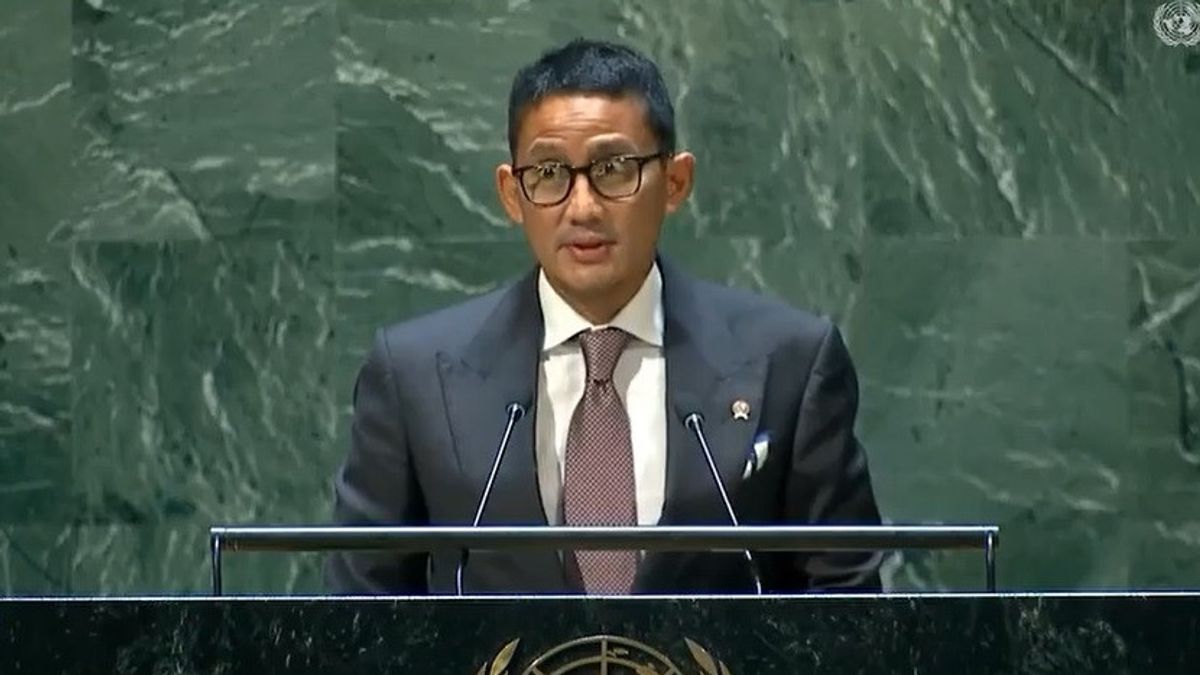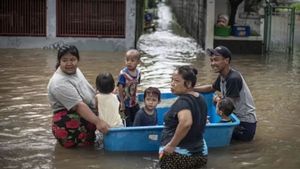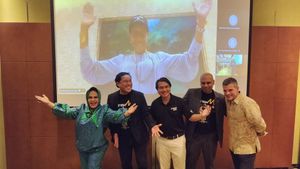JAKARTA - Indonesia has succeeded in reviving the tourism sector after 2 years of being hit by the COVID-19 pandemic crisis. However, this achievement should not make Indonesia fast itself.
This was conveyed by the Minister of Tourism and Creative Economy when giving a speech at the 'High-level Thematic Debate on Tourism' event held by the United Nations General Assembly Hall, New York, United States, Wednesday, April 4.
Sandiaga said the COVID-19 pandemic had a major impact on the world tourism industry. The pandemic made international tourist movements down 73 percent compared to pre-pandemic levels in 2019. The impact is also getting bigger because tourism has a multiplier effect.
Sandiaga also said that in Indonesia there are more than 34 million people whose livelihoods depend on the tourism sector and the creative economy. Therefore, according to him, it is important for every country to change the concept of a more sustainable tourism industry.
With global tourism starting to grow post-pandemic, continued Sandiaga, it is time to start this transformation. Sandiaga said, Indonesia saw a positive trend in global travel and tourism with 130 percent growth in January 2022, compared to 2021.
"However, we must not be complacent. It is very important for us not to return to a business-as-usual approach. We must rebuild the tourism industry better, more sustainable and more resilient," he said in a written statement received by VOI, Saturday, May 7th.
Sandiaga explained, the development of a sustainable tourism sector must not only look at environmental issues or environmental welfare. But, he continued, it must also elevate the dignity of local culture, society and traditional knowledge, and create a balance between mass tourism and quality tourism.
To make this happen, still said Sandiaga, it takes elements that are interconnected. The first is a multi-stakeholder approach. In developing the sustainable tourism sector, you cannot do it alone. Both the public and private sectors need to engage and collaborate with each other, as well as with local communities.
"Both the private and public sectors need to focus on having measurable goals and comparable metrics. These components are critical to the long-term improvement and accountability of sustainable tourism," he said.
To better align efforts towards best sustainable tourism practices, it is also important for public and private stakeholders to have a unified narrative of what is meant by sustainable tourism and for them to have adequate access to accurate information.
"Nowadays, we also need to look at the role of millennials and Generation Z in sustainability not only as tourists, but also as investors. Therefore, engagement with the demographics on sustainable tourism must be a priority," he said.
Then, continued Sandiaga, it is necessary to strengthen the role of the community as agents of change in tourism transformation. As part of the Government of Indonesia's efforts to build a strong and sustainable tourism sector, the Ministry of Tourism and Creative Economy will focus on advancing tourism recovery through strengthening the role of the community as agents of change in tourism transformation.
The English, Chinese, Japanese, Arabic, and French versions are automatically generated by the AI. So there may still be inaccuracies in translating, please always see Indonesian as our main language. (system supported by DigitalSiber.id)













